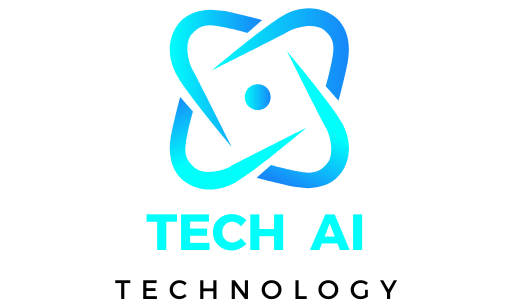Deciding between a web developer vs software developer is a big step, especially if you’re just starting in tech. Both careers offer high earning potential, job security, and opportunities in the booming U.S. tech industry. A web developer focuses on building websites, web apps, and interactive user experiences using languages like HTML, CSS, and JavaScript.
Meanwhile, a software developer works on creating software solutions, desktop applications, and system programs with languages like Python, Java, or C++. But which path is right for you? In this guide, we’ll break down their key differences, required skills, and career growth potential helping you choose the best tech career in today’s competitive job market.
Web Developer vs Software Developer: Key Differences Explained
Choosing between a web developer and a software developer depends on your career goals and interests. A web developer specializes in building and maintaining websites and web applications using front-end and back-end technologies.
Meanwhile, software developers create desktop applications, mobile apps, and system software with various programming languages. While both require coding skills, they focus on different platforms and user needs. Understanding these differences helps beginners choose the right career path in tech.
What is a Web Developer?
A web developer is responsible for designing, coding, and maintaining websites and web applications. They ensure that websites are responsive, functional, and optimized for user experience. Web developers work with programming languages like HTML, CSS, JavaScript, PHP, and frameworks like React, Angular, or Vue.js. Their primary focus is how a website looks and functions across different devices.
Web developers are categorized into three main types:
- Front-end developers: Focus on the user interface (UI) and user experience (UX) by working on design, layout, and interactivity.
- Back-end developers: Handle server-side logic, databases, and APIs to ensure smooth data flow and website performance.
- Full-stack developers: Combine front-end and back-end skills to develop complete web solutions.
What is a Software Developer?
A software developer designs, develops, and maintains software applications for various devices, including desktops, mobile phones, and embedded systems. They work with programming languages like Java, Python, C++, and Swift to create applications that run on operating systems like Windows, macOS, and Linux.
Software developers focus on different areas, such as:
- Application developers: Build mobile and desktop applications like games, business tools, and productivity software.
- System developers: Work on operating systems, databases, and networking software to improve performance.
- Embedded software developers: Develop software for devices like IoT gadgets, robotics, and automotive systems.
Key Differences Between Web and Software Development
1. Platform and Application Type
Web developers create web based applications that users access through browsers like Chrome, Firefox, or Safari. These applications require internet connectivity and are optimized for mobile and desktop experiences. On the other hand, software developers build applications that run on operating systems, such as Windows, macOS, or Linux and don’t always require an internet connection.
2. Programming Languages and Tools
Web developers create dynamic websites using HTML, CSS, JavaScript, and frameworks like React and Angular. They also work with back-end languages like PHP, Node.js, Python, and Ruby on Rails.
Software developers, however, use Java, Python, C++, C#, and Swift to develop applications that run directly on an operating system. They often use integrated development environments (IDEs) like Visual Studio, Eclipse, or IntelliJ IDEA to write and debug code.
3. Career Growth and Job Demand
Both fields offer strong career prospects, but they cater to different industries. Web developers often work for digital agencies, eCommerce companies, and startups, while software developers find roles in technology firms, finance, healthcare, and enterprise software companies.
According to the U.S. Bureau of Labor Statistics, demand for both roles continues to grow, with web developers averaging $78,300 annually and software developers earning around $110,140.
4. Skill Set and Learning Curve
Web development requires knowledge of front-end and back-end technologies and an understanding of UI/UX design principles. Beginners can quickly learn HTML, CSS, and JavaScript and progress to full-stack development.
Software development, however, requires a deeper understanding of data structures, algorithms, and system architecture. Learning languages like Java, Python, and C++ can be more complex, but they can lead to high-paying jobs in artificial intelligence (AI), cloud computing, and cybersecurity.
Which Career Path is Right for You?
If you enjoy designing websites, working on front-end user interfaces, or developing interactive web applications, web development is a great choice. However, software development offers more opportunities if you prefer building complex software applications, creating mobile apps, or working with AI and system software.
Both careers offer high earning potential, job security, and growth in the U.S. tech industry. The best choice depends on your skills, interests, and long term goals. Start learning today and build a career in the ever evolving world of technology!
What is a Web Developer? Roles, Skills, and Technologies Explained

Definition of a Web Developer
A web developer is a professional who builds and maintains websites and web applications. They ensure a website’s functionality, speed, and user experience (UX) by using coding languages, frameworks, and database management systems to create dynamic, responsive sites.
Key Focus Areas of a Web Developer
Web developers focus on designing user interfaces (UI), enhancing user experience, and optimizing website performance. They ensure sites load quickly, are mobile friendly, and function seamlessly across browsers.
Essential Tools and Technologies
Web development relies on front-end, back-end, and database technologies.
Front-End Technologies
Front-end developers create visual layouts, interactive elements, and animations using:
- HTML: The backbone of any webpage.
- CSS: Styles the website for a modern look.
- JavaScript: Adds interactivity and dynamic features.
- React, Angular, Vue.js: Frameworks that streamline front-end development.
Back-End Technologies
Back-end developers manage server side operations, databases, and APIs using:
- Node.js: JavaScript runtime for server side scripting.
- PHP: A widely used language for web applications.
- Python & Django: Popular for scalable and secure web solutions.
- Ruby on Rails: A framework known for fast development.
Databases Used in Web Development
A web developer must handle data storage and retrieval efficiently. Common databases include:
- MySQL: A reliable relational database.
- MongoDB: A NoSQL database for handling large scale applications.
- Firebase: A cloud based real time database.
Types of Web Developers
1. Front-End Developer
A front-end developer focuses on website design, responsiveness, and user interactions. They ensure websites look appealing and work smoothly across different screen sizes.
2. Back-End Developer
A back-end developer manages servers, databases, and APIs. They handle website logic, authentication, and data security.
3. Full-Stack Developer
A full-stack developer works on both front-end and back-end development. They build complete web solutions, ensuring seamless integration between UI/UX and server side functions.
What is a Software Developer? Role, Skills, and Career Guide
Definition of a Software Developer
A software developer designs, builds and maintains applications for desktops, mobile devices, and enterprise solutions. They write code, test software, and improve system performance. Their expertise spans multiple fields, including application development, system software, and AI based applications.
Areas of Expertise in Software Development
Software developers work in various domains, focusing on different types of applications. Their expertise includes:
- Application Development: Creating web, mobile, and desktop applications.
- System Software: Developing operating systems, back-end frameworks, and cloud solutions.
- AI Based Applications: Building machine learning models and intelligent automation tools.
Essential Tools and Technologies for Software Developers
Software developers use various tools and technologies to build efficient and scalable applications.
Programming Languages:
- Java: Used in enterprise applications and Android development.
- Python: Popular for AI, machine learning, and web applications.
- C++: Essential for game development and system programming.
- C#: Used for Windows applications and game development with Unity.
- Swift & Kotlin: Preferred for iOS and Android mobile development.
Development Environments:
- Visual Studio: Ideal for C# and .NET development.
- IntelliJ IDEA: Optimized for Java programming.
- Xcode: The go to tool for iOS app development.
- Android Studio: The best environment for building Android applications.
Operating Systems:
- Windows: Used for enterprise applications and software engineering.
- macOS: Preferred for iOS and macOS application development.
- Linux: Popular among system developers and DevOps engineers.
Types of Software Developers
Software developers specialize in different fields depending on their expertise.
1. Application Developer
An application developer builds software for web, desktop, and mobile platforms. They create user friendly applications using Java, Python, and Swift programming languages. Their work involves UI/UX design, database management, and performance optimization.
2. System Developer
A system developer works on operating systems, networking software, and large scale back-end systems. They develop low level software that ensures smooth system functionality. These developers build reliable and secure applications using C++, C, and Rust.
3. Embedded Software Developer
An embedded software developer creates software for IoT devices, robotics, and automation systems. They design firmware that controls hardware components. Embedded developers program microcontrollers and embedded processors using C, C++, and Python
Key Differences Between Web Development and Software Development

Web and software development are crucial fields in the tech industry, but they serve different purposes. While web development focuses on creating online applications, software development builds standalone or network based programs. Understanding their differences helps aspiring developers choose the right career path.
1. Work Environment and Platforms
Web developers build applications that run in web browsers. These include websites, web apps, and eCommerce platforms. They optimize user interfaces, improve site speed, and enhance security for online experiences.
On the other hand, software developers create applications for operating systems like Windows, macOS, and Linux. Their work includes mobile app development, desktop applications, and enterprise software solutions. These programs often run without internet connectivity and interact with hardware components.
2. Programming Languages Used
Web development relies on front-end and back-end technologies. Popular languages include HTML, CSS, and JavaScript for front-end development back-end languages like PHP, Python (Django, Flask), and Node.js power dynamic websites.
Software development requires more system level programming. Developers use Java, C++, Python, Swift, and Kotlin to build mobile apps, operating system utilities, and AI powered applications. These languages offer better control over system resources.
3. Career Opportunities and Job Demand
Both careers offer strong job prospects, but their work environments differ. Web developers work in digital agencies, tech startups, and eCommerce companies. Their roles include UI/UX design, SEO optimization, and website maintenance.
Software developers find jobs in enterprise software firms, cybersecurity companies, and AI driven startups. They work on machine learning, cloud computing, and network security.
U.S. Salary Data:
- Web Developer: $78,000 – $120,000 per year.
- Software Developer: $100,000 – $140,000 per year.
4. Learning Curve and Skill Requirements
Web development has a lower entry barrier. Beginners can learn HTML, CSS, and JavaScript quickly to start building websites. Frameworks like React, Angular, and Vue.js streamline development.
Software development requires deep technical knowledge. Mastering algorithms, data structures, and system design is essential. Developers often work on large scale applications that require performance optimization and security measures.
5. Project Complexity and Scalability
Web development projects are scalable and faster to deploy. They involve responsive design, API integrations, and cloud hosting. Businesses need web apps for customer interaction, eCommerce, and digital marketing.
Software development projects are more complex. They handle large datasets, AI driven automation, and enterprise level solutions. Security, performance, and long term maintenance are critical factors.
Which Career Path is Right for You? Web Development vs. Software Development
Choosing the right career path can be challenging, especially in the tech industry. Two of the most in demand fields are web development and software development. While both involve coding, they focus on different aspects of technology. Let’s explore which path suits you best.
Choose Web Development If:
- You enjoy working on UI/UX design, front-end development, and improving website performance.
- You want to create dynamic eCommerce platforms, blogs, and SaaS applications.
- You prefer a faster project turnaround with visually engaging designs and interactive user experiences.
- You like using tools like HTML, CSS, JavaScript, React, and WordPress to build websites.
- You are interested in SEO, website speed optimization, and mobile responsiveness.
- You want to specialize in front-end development, back-end development, or full-stack development.
Web Development Career Opportunities:
- Front-End Developer: Focuses on website layout, animations, and user interactions.
- Back-End Developer: Builds server side logic, databases, and application functionality.
- Full-Stack Developer: Manages both front-end and back-end development.
- WordPress Developer: Customizes themes, plugins, and CMS based websites.
Choose Software Development If:
- You enjoy problem solving, algorithms, and logical thinking.
- You want to develop machine learning, cybersecurity, and enterprise software applications.
- You prefer high performance applications that involve back-end logic and data processing.
- You are interested in Python, Java, C++, and Kotlin.
- You want to work on AI driven applications, mobile apps, or cloud based solutions.
- You enjoy debugging, testing, and optimizing system performance.
Software Development Career Opportunities:
- Software Engineer: Designs and builds large scale applications and operating systems.
- AI/ML Engineer: Works on artificial intelligence and machine learning models.
- Cybersecurity Specialist: Develops secure systems to protect data from cyber threats.
- Mobile App Developer: Creates applications for iOS and Android platforms.
Web Development vs. Software Development: Which One is Better?
Both fields offer excellent career opportunities, but the choice depends on your interests. If you enjoy creative, fast paced projects and love building visually appealing websites, web development is for you. Software development is a better fit if you prefer complex problem solving, algorithms, and back-end logic.
Future Trends in Web and Software Development

The world of web and software development is evolving rapidly. Emerging technologies like AI, blockchain, cloud computing, and AR/VR are transforming how applications are built and used. Here are the six major trends shaping the future of web development.
Rise of AI in Web Development
AI driven design tools are revolutionizing web development. Platforms like Wix ADI and Framer AI use machine learning to create websites with minimal human input. AI powered chatbots, automated testing, and code generation tools enhance efficiency. Developers leverage AI for predictive analytics, user behavior insights, and personalized experiences. As AI continues to evolve, it will redefine how websites are designed, developed, and optimized.
Blockchain and Web3
Web3 is reshaping web and software development. Blockchain technology enables decentralized applications (dApps) with enhanced security and transparency. Smart contracts automate transactions, reducing the need for intermediaries. Web3 introduces token based economies, empowering users with digital ownership. As blockchain adoption grows, developers must adapt to new frameworks, decentralized hosting, and blockchain based authentication.
Cloud Based Software Development
Cloud computing is the future of software development. SaaS (Software as a Service) solutions dominate the market, offering scalability and cost efficiency. Hybrid cloud applications combine on premises and cloud resources for optimal performance. Serverless computing allows developers to focus on coding without managing infrastructure. Cloud based DevOps streamlines workflows, enabling faster deployments and continuous integration.
Augmented Reality (AR) and Virtual Reality (VR)
AR and VR are revolutionizing web experiences. Technologies like WebXR and ARKit enable immersive web applications. E-commerce websites use AR for virtual try ons, enhancing user engagement. VR powered training simulations provide realistic experiences in industries like healthcare and education. As AR and VR hardware becomes more accessible, developers will create more interactive and immersive applications.
The Future of Web and Software Development
Integrating AI, blockchain, cloud computing, and immersive technologies is shaping the next generation of web and software applications. Developers must stay updated with these trends to build innovative, secure, and scalable solutions. The future of web development is dynamic, with AI driven automation, decentralized systems, and immersive user experiences leading the way.
FAQs:
Q1. What is the main difference between a web developer and a software developer?
A web developer specializes in building websites and web applications that run in a browser, using technologies like HTML, CSS, JavaScript, and frameworks like React or Angular. A software developer creates applications for desktops, mobile devices, and enterprise solutions, working with programming languages like Java, C++, and Python.
Q2. Is web development easier than software development?
Web development is generally more manageable for beginners, as it has a faster learning curve with front-end technologies like HTML, CSS, and JavaScript. However, software development requires more profound knowledge of data structures, algorithms, and system architecture, making it more complex.
Q3. Do web developers and software developers use the same programming languages?
Some languages overlap, such as JavaScript and Python, but the focus differs. Web developers primarily use HTML, CSS, JavaScript, PHP, and frameworks like React or Vue.js, while software developers work with Java, C++, C#, Swift, and Kotlin for desktop and mobile applications.
Q4. Which job has a higher salary: web developer or software developer?
In the U.S., software developers generally earn more due to their expertise in large scale applications. Average salaries:
- Web Developer: $78,000 – $120,000 per year.
- Software Developer: $100,000 – $140,000 per year.
Q5. Can a web developer become a software developer?
A web developer can transition to software development by learning advanced programming concepts, system design, and languages like Java, C++, or Python. Full-stack developers often bridge the gap between the two fields.
6. What are the job prospects for web developers vs software developers?
Both fields have high demand, but software development offers broader opportunities in fields like AI, cybersecurity, and enterprise applications. Web development is excellent for freelancing, startups, and eCommerce businesses.
Q7. Do web developers need a degree like software developers?
No, a computer science degree is not mandatory for web development. Many web developers are self taught through coding boot camps. However, software developers often require a CS degree or extensive knowledge of algorithms and system architecture.
Q8. Which is better: web development or software development?
It depends on your interests and career goals:
- Choose Web Development if you enjoy designing websites, front-end UI/UX, and web applications.
- Choose Software Development if you like problem solving, AI, and large scale software projects.
Q9. Is web development dying with AI and automation?
No, web development is evolving with AI driven tools, Web3, and progressive web applications (PWAs). While AI automates some coding tasks, there is still a huge demand for skilled web developers to create custom solutions.
Q10. How do I choose between becoming a web developer or software developer?
Consider your interests, job market demand, and learning preference:
- If you like visual design, website creation, and front-end UI, choose web development.
- If you enjoy coding logic, app development, and back-end systems, go for software development.
Conclusion:
Choosing between a web developer and a software developer career depends on your interests, skills, and long term goals. Web development is great for building websites and online applications, while software development focuses on creating complex programs for various platforms.
Both fields offer strong job prospects, competitive salaries, and exciting challenges. If you enjoy designing user friendly websites, web development is the way to go. If you love solving complex coding problems, software development is a better fit. No matter which path you choose, continuous learning and hands on experience will help you succeed in the tech industry. 🚀

